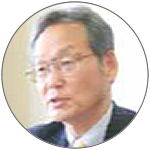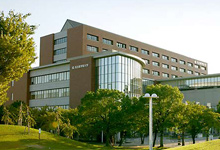Regional cooperation education
At our university, we have also been focusing on regional cooperation education, but in 2013, with the adoption of the national "local <knowledge> base development project" (university COC project), "Project & N" By name, it is spreading to university-wide development* XNUMX..It is a project that returns the knowledge of the university to the region, improves the quality of the region, and incorporates the educational power of the region into the university and promotes reform by collaborating with the region.・ The goal is to develop good citizens and good professionals who can solve the problem and love the area.In recent years, we have recognized that it is important to have a deeper understanding of the region, so we have positioned it as a distinctive education of our university, which is a two-wheeled relationship with international human resource development.
In the COC project, excellent efforts have been reported nationwide, including in Aichi Prefecture, but the major characteristics of this university are its university-wide expansion and its abundant and step-by-step curriculum from XNUMX to XNUMX years. I have.
Specifically, we have established various town development projects from the three approaches of "regional commercial town development," "historic tourism town development," and "disaster mitigation welfare town development."For each approach, we will participate in "town development proposal competition" and "problem-based learning (PBL)", and also learn "community-oriented subjects".Through classes and activities such as "Regional Forum," "Regional Internship," and "Regional Extracurricular Activities," we will interact with the community in a practical and enjoyable way.
The "Machizukuri Proposal Competition" is a participatory educational event for the first year of all faculties.In Atsuta Ward and Seto City, where the campuses are located, we will go around the town, find problems from three perspectives, think about solutions, and make policy recommendations.The purpose is to develop attachment to the town in which we live our daily lives, and to develop our ability to discover issues and make proposals.The collected proposals will be selected in Atsuta Ward and Seto City, respectively, and the best work will be commended by their respective chiefs.
The "problem-solving class" consists of three steps, "town development studies," "town development exercises," and "advanced town development exercises," for each approach. After conducting on-site surveys and analysis, we finally make policy proposals.As for the subjects, XNUMX subjects are prepared as "Regional understanding field" in the NGU liberal arts standard subject. In addition to these subjects, ". Community-oriented subject" includes economics, commerce, law, foreign language, sports health. , XNUMX faculties of rehabilitation prepare specialized subjects respectively.All of them are problem-solving, and you can continue to learn in each specialized class.
The "Regional Forum" is an all-student participation event that returns the results of education and research at the faculty to the community. We will share the results with local stakeholders based on the seminars we belong to in 2015 or XNUMX years. It will be tried in one faculty in XNUMX, and will be expanded throughout the university from this year.
In addition, there are "community internships" and "community extracurricular activities", which are the culmination of learning up to that point.
About 20 projects are currently underway.Guidebook production in English by the Faculty of Foreign Studies and planning such as "project758" by the Faculty of Commerce* XNUMXIt really varies.All of these efforts are full of enthusiasm, and it seems that Nagoya City also regards it as a regional revitalization model through collaboration between the government and universities.
Today's young people are not good at communicating with people of different generations and different values due to the declining birthrate.Through the project, you can see that as you accomplish something with your own hands, you will not only improve your communication skills, but also grow as a whole.In the future, we would like to further increase the number of projects, subjects, and partners.
* 2: In order to rediscover the charm of Nagoya, we created a magazine (photo) with characters to guide you to long-established stores and famous places.With the cooperation of voice actors, it is also distributed as a video, and has received a lot of feedback from all over the country.
Hisao Kibune
Born in Iwata City, Shizuoka Prefecture in August 1955.Completed the first half of the doctoral program at Waseda University Graduate School of Commerce.After working as the director of the 8th Laboratory of the Institute of Energy Economics, Japan, he became an assistant professor in the Faculty of Economics of the University of Tokyo in 1992. 1998 Promoted to professor.He has served as the director of the Information Education Center, the Dean of the Faculty of Economics, and the Dean of the Graduate School of Economics and Business Administration, and became the President in 2011.Specializes in resource economics and energy environmental policy.


